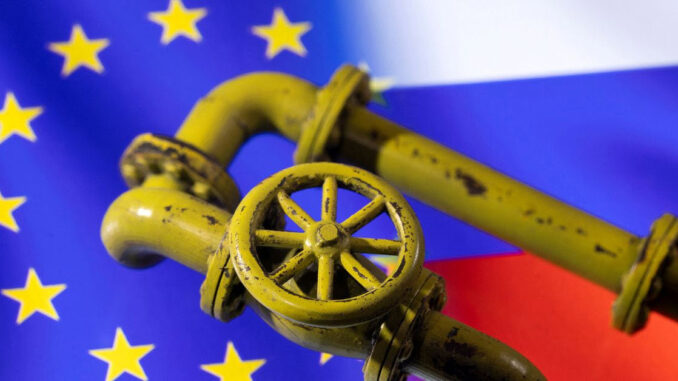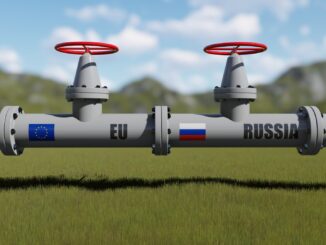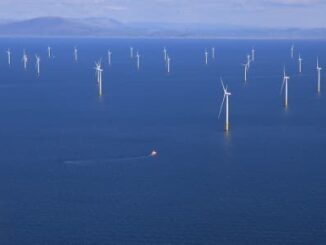
ENB Publishers Note: Watch, Putin will use the Nord Stream 1 maintenance issues as leverage to get Nord Stream 2 approved. Once that happens, Putin’s energy chess match is over. He will be crowned Energy Czar.
FRANKFURT, July 11 (Reuters) – Germany, the world’s fourth-biggest economy, is preparing for all scenarios including a complete stop to Russian gas supplies once a regular 10-day maintenance period on the giant Nord Stream 1 pipeline ends.
Maintenance on the pipeline, which carries Russian gas directly into Germany, began on July 11 but Berlin is factoring in gas being used by the Kremlin to exert political pressure on the West, something denied by Moscow.
Here are some of the risks should the outage period last longer or the pipeline reopen with reduced flows.
WHY IS NORD STREAM 1 SO CRUCIAL?
It is the biggest single route for Russian gas into Germany, bringing 55 billion cubic metres (bcm) a year. Germany consumed 100 bcm last year.
Russian gas transits via Poland have stopped this year and those via Ukraine have been curtailed by the war.
Half of German households rely on gas heating, particularly from October through March and failure to reopen Nord Stream 1 would scupper plans to fill underground gas storage before winter.
The caverns could in theory meet national demand for 2-1/2 months, but are only 64.6% full, compared with an Oct. 1 target of 80%.
Meanwhile, the market for alternative gas origins is tight worldwide and prices have soared since last year as demand recovers after the pandemic.
HOW AND WHEN WOULD GERMANY LIMIT GAS TO CONSUMERS?
If Germany pulls the trigger on the emergency phase of a three-stage escalation plan, the Bundesnetzagentur network regulator would be tasked with ensuring that gas is distributed fairly.
The stage would be triggered by exceptionally high demand for gas or a significant disruption to supply, for example if Nord Stream 1 was to remain closed.
Germany has been in stage two since June 23 after Nord Stream 1 volumes dropped to 40% of capacity.
Chemical, steel, glass and paper producers are Germany’s leading industrial gas consumers, but effects would ripple as far as food and porcelain production.
The aluminium industry, with sales of 22 billion euros and 60,000 employees, relies on gas for melting and recycling.
In the paper industry, with a turnover of 15.5 billion euros and 40,000 employees, operators say paper and cardboard are vital for food, medications and hygiene articles.
WHAT ARE COMPANIES DOING?
Germany’s biggest gas importer Uniper (UN01.DE) has asked for a government bailout that a political source said runs to 9 billion euros, and other utilities could face similar problems.
Leading steelmaker Thyssenkrupp (TKAG.DE) is drawing up plans for disruptions, according to a spokesperson, as using oil or coal instead of gas is not possible. Should certain minimal allocations be denied, Thyssenkrupp plants may have to close and technical damage to aggregates is possible.
Cutting gas supply to aluminium plants by even 30% would mean half of them would stand idle, industry group Aluminium Deutschland says. Prominent players are Hydro Aluminium, Speira and Trimet.
Chemicals giant BASF (BASFn.DE) needs to maintain gas supplies of around 50% of its maximum demand and a halt to Russian flows would trigger a company-wide emergency plan.
Leading paper companies are Stora Enso (STERV.HE), UPM and Mitsubishi Hitec Paper Europe.
WHAT COULD HAPPEN TO THE ECONOMY?
In the grimmest prediction to date, the Bavarian vbw industry group said the country could lose 12.7% of its economic performance in the second half of 2022 in the event of a complete halt to Russian gas supplies.
WHAT ARE THE SOCIO-POLITICAL RISKS?
Social strife over gas could give a boost to populists on the far right and far left of the political spectrum, potentially eroding rational discourse on how to proceed.
Berlin has approved a law keeping open options to pass on sky-high prices directly, or alternatively seek to distribute hikes more generally among users.



